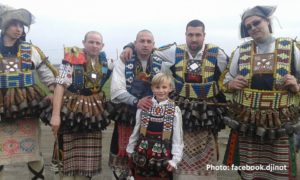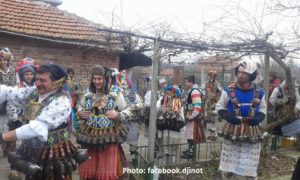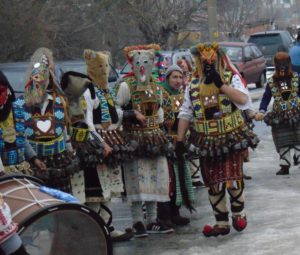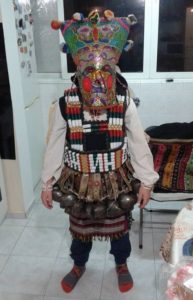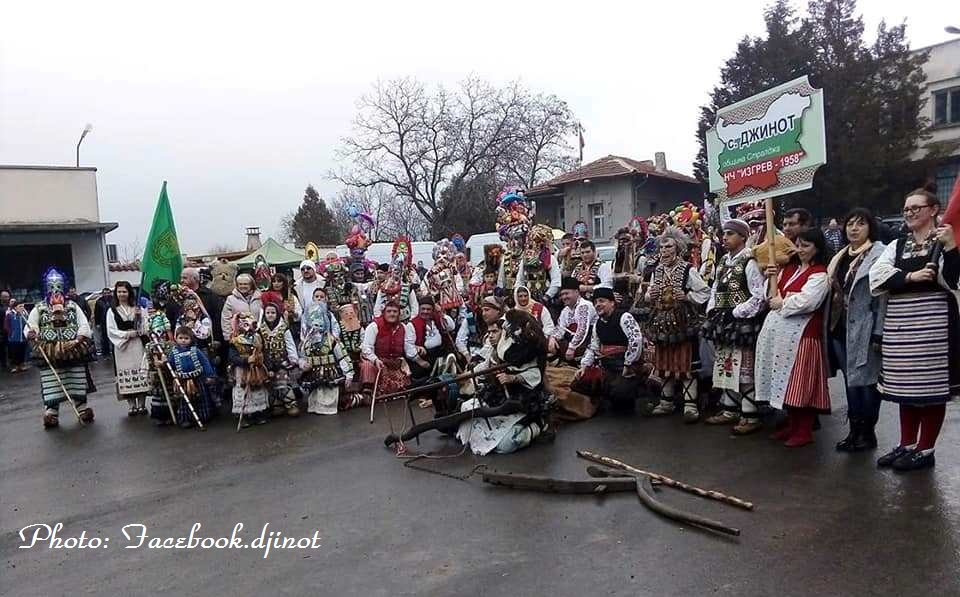Kukeri chase the bad things
Sonya Machorska
Kukeri in the village of Djinot, Bulgaria, for another year dancing in the streets to scare the bad forces and to forsake the cold, and for ritual and health perform rituals such as plowing, sowing and others, reported Zdravko Gitsov, publisher of www.yambolpress.bg.
The ancient tradition is performed by about 30 young men and boys who walk every home in the village to drive out evil spirits and bless for health and blessing. Farmers welcome them as dear guests, draw them with wine and home-made appetizers.
The mummers are of a high head or cap, pretended as beasts or typical characters (grandmother, grandfather, king, tax collector), always with head masks, waist with leather belts and dozens of laps, whose deafening sound sounds for two days, in their hands they hold geggs. The group necessarily performs the custom of plowing and sowing with the blessing of the bride.
The custom is widely spread in Southern and Central Europe – in Romania, Moldova, Serbia, Greece, the Republic of Macedonia, Slovenia, Croatia, Bulgaria, etc. Similar carnival masks exist in Italy on Sardinia. The Italian mamutones wore black wood masks, belt buckles and cowls. A very close ritual is also celebrated in Cantabria, Spain. His name is Vichaneera, and the Spanish kukeri are called a sparrow. It is celebrated on the first Sunday of the new year. Kukeri also has Poland, Hungary, Croatia and Slovakia, as well as in Austria where they are called perchten. The custom on our lands originates from the Thracians, where it was celebrated during the days of the Thracian god of joy Dionysius and the reception of a new year of agriculture related to the plowing of the fields. The bakeries celebrate the passing of winter and the arrival of summer fertility.
